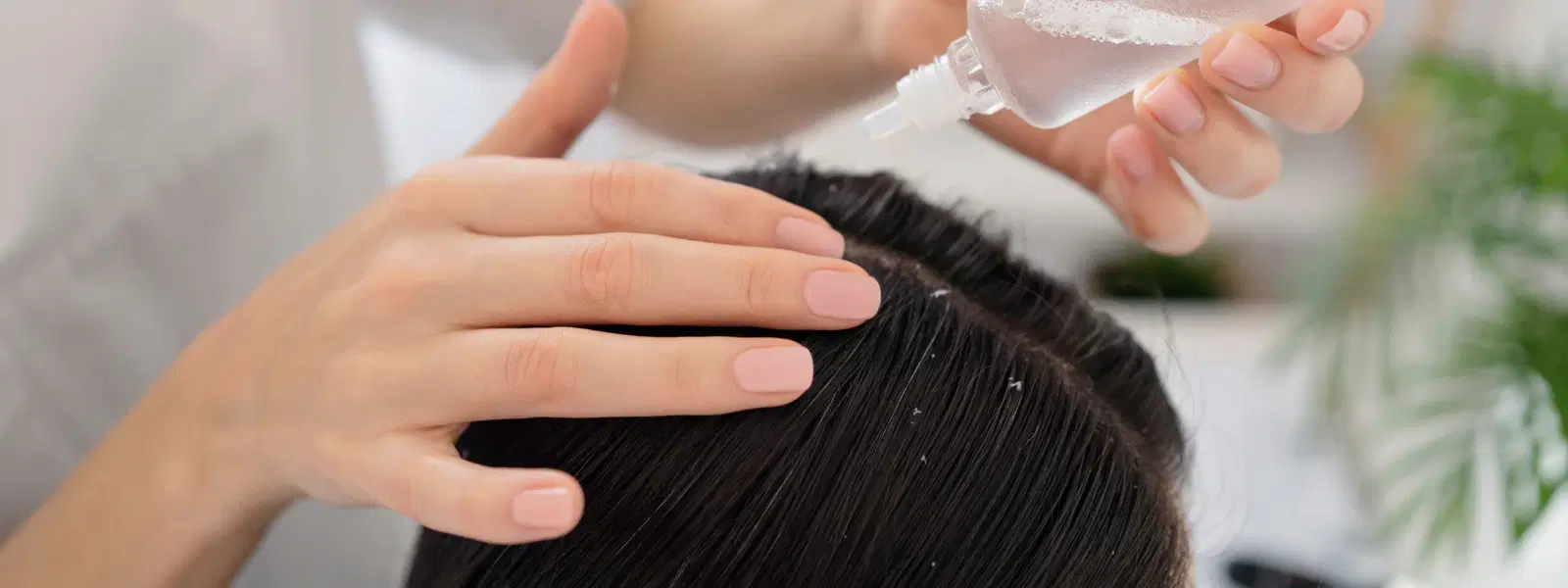
Beauty & Skincare
•04 min read
-9872eb55-9af0-4022-8644-bd8f05e8333e.png&w=3840&q=75)
Scalp care is often the unsung hero in our beauty routines. Yet, a healthy scalp is the foundation of vibrant, strong hair. In this guide, we explore a range of topics—from knowing what scalp care truly means to building a routine that caters to your unique needs. By understanding concepts such as scalp hydration, natural scalp care, and proper cleansing techniques, you can craft a healthy scalp routine that supports your overall hair health.
A robust scalp is the cornerstone of lively, shiny hair. It holds the hair follicles, regulates oil production, and shields you from common issues like itchiness and dandruff. By taking care of your scalp, you invest in the health of your hair and ensure that every strand thrives. This dedication can make a big difference, whether you’re embracing natural scalp care or opting for specific hair and scalp treatment routines.
It’s important to recognize the signs when your scalp may not be in the best form. Look for:
Excessive dryness or flakiness
Persistent itchiness or irritation
Oily buildup or a greasy texture
Hair thinning or slower growth
Redness or inflammation
By understanding these signals, you can take steps to address them early and ensure your scalp remains healthy and balanced.
By investing in scalp care, you enjoy several benefits that go beyond just beautiful hair. A regular routine helps promote better hair growth by stimulating blood flow to hair follicles, reducing dandruff, and balancing oil production. Moreover, a nourished scalp enhances the performance of other hair treatments and products, making every application work harder for you.
Keeping your scalp clean is essential to remove dirt, oil, and product buildup that can weigh your hair down. Use a gentle, sulfate-free shampoo suited to your scalp type. Consider these cleansing tips to maintain a balanced scalp:
Wash with lukewarm water to avoid stripping natural moisture.
Massage gently with your fingertips rather than scrubbing harshly.
Avoid over-washing, as this may lead to dryness and irritation.
This approach leaves your scalp refreshed without compromising the integrity of your natural oils, thus supporting both scalp health and a healthy scalp routine.
-5ba1f1f6-995b-4617-a1ff-43890351cff7.png&w=3840&q=75)
Exfoliating the scalp once a week helps in removing dead skin cells and stimulates blood circulation. Whether you opt for a natural scalp scrub or an exfoliating shampoo, look for ingredients such as salicylic acid or tea tree oil which aid in effective scalp exfoliation. This practice not only improves scalp clarity but also readies it to absorb hydrating treatments better.
Hydration is a key step for maintaining a healthy scalp routine. Including scalp oils or leave-in treatments infused with aloe vera, hyaluronic acid, or coconut oil can keep dryness and irritation at bay. A well-moisturized scalp not only feels more comfortable but also promotes an optimal environment for hair growth, ensuring that every strand remains nourished and strong.
A dry scalp can be both uncomfortable and detrimental to overall hair health. To soothe dryness, opt for hydrating oils and nourishing masks. Ingredients like urea, glycerin, or shea butter offer moisture and relief, replenishing the scalp effectively. These dry scalp remedies help restore balance and protect the scalp’s natural barrier, ensuring each hair strand gets the care it deserves.
For those with oily scalps, managing excess oil while keeping the scalp clean is crucial. Clarifying shampoos can be your go-to option. It is advisable to avoid heavy conditioners that may worsen oiliness. Ingredients such as green tea, witch hazel, and apple cider vinegar are effective in regulating oil production, leaving your scalp feeling fresh and light. These oily scalp solutions work to maintain a neat and balanced scalp environment.
Dandruff, often stemming from fungal imbalance or dryness, can be a source of discomfort. To combat this, consider anti-dandruff shampoos enriched with active ingredients like zinc pyrithione, ketoconazole, or selenium sulfide. Such hair and scalp treatment options are designed to tackle the root causes of flakiness and bring lasting relief, paving the way for a smoother, healthier scalp.
Embracing natural methods can elevate your scalp care routine. Remedial ingredients like aloe vera offer deep hydration, while tea tree oil provides antibacterial benefits. Rosemary oil not only purifies but also stimulates hair growth, creating a holistic approach to natural scalp care. Blending these natural elements into your routine can transform your scalp’s health organically.

Scalp massage is a powerful practice that does more than just feel good. Regular massages boost blood circulation, relieving stress and promoting healthier hair growth. Using gentle, circular motions paired with essential oils can optimize these benefits. With consistent scalp massage benefits, you can nurture both the skin and the hair follicles, reinforcing the effectiveness of your overall hair and scalp treatment regimen.
Pro Tip: Did You Know? Scalp massages can increase blood flow to hair follicles, encouraging stronger and faster hair growth. Pair your massage with a few drops of rosemary or peppermint oil for maximum results!
A healthy scalp is free from irritation, redness, or excessive dryness. It maintains balanced oil production and nurtures strong, shiny hair growth.
Exfoliating once a week is sufficient to remove buildup without causing irritation.
Yes, a well-maintained scalp enhances blood flow and nourishes hair follicles, which promotes robust hair growth.
Hydrating oils, moisturizing masks, and shampoos rich in urea or glycerin are excellent dry scalp remedies.
Use clarifying shampoos and light conditioners while incorporating ingredients like witch hazel or green tea to balance oil production effectively.
Taking care of your scalp is essential to supporting a healthy hair routine. By integrating practices such as proper cleansing, regular exfoliation, hydration, and natural remedies, you can create a balanced environment that nurtures your hair. Remember, adding gentle scalp massages and using targeted treatments can further cement your journey towards a more vibrant, stress-free scalp. Explore innovative ways to enhance your beauty routine and embrace the power of dedicated scalp care.